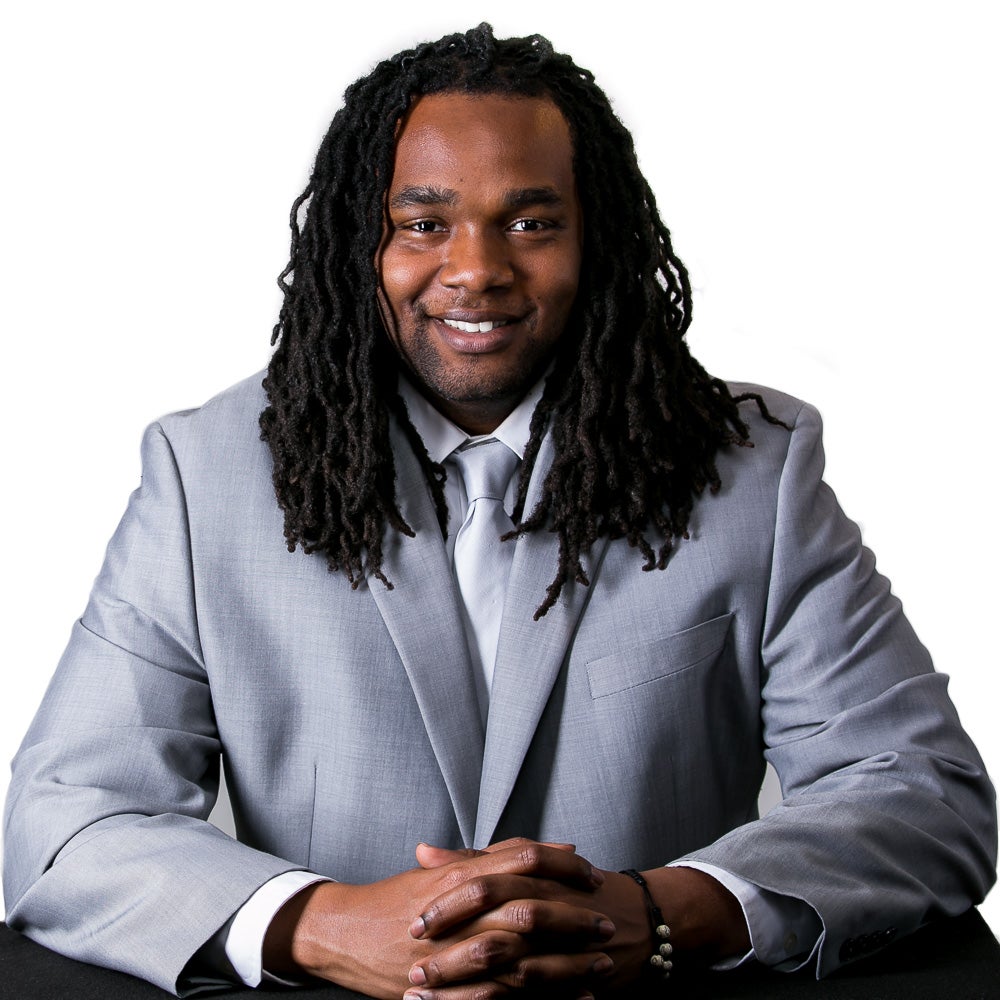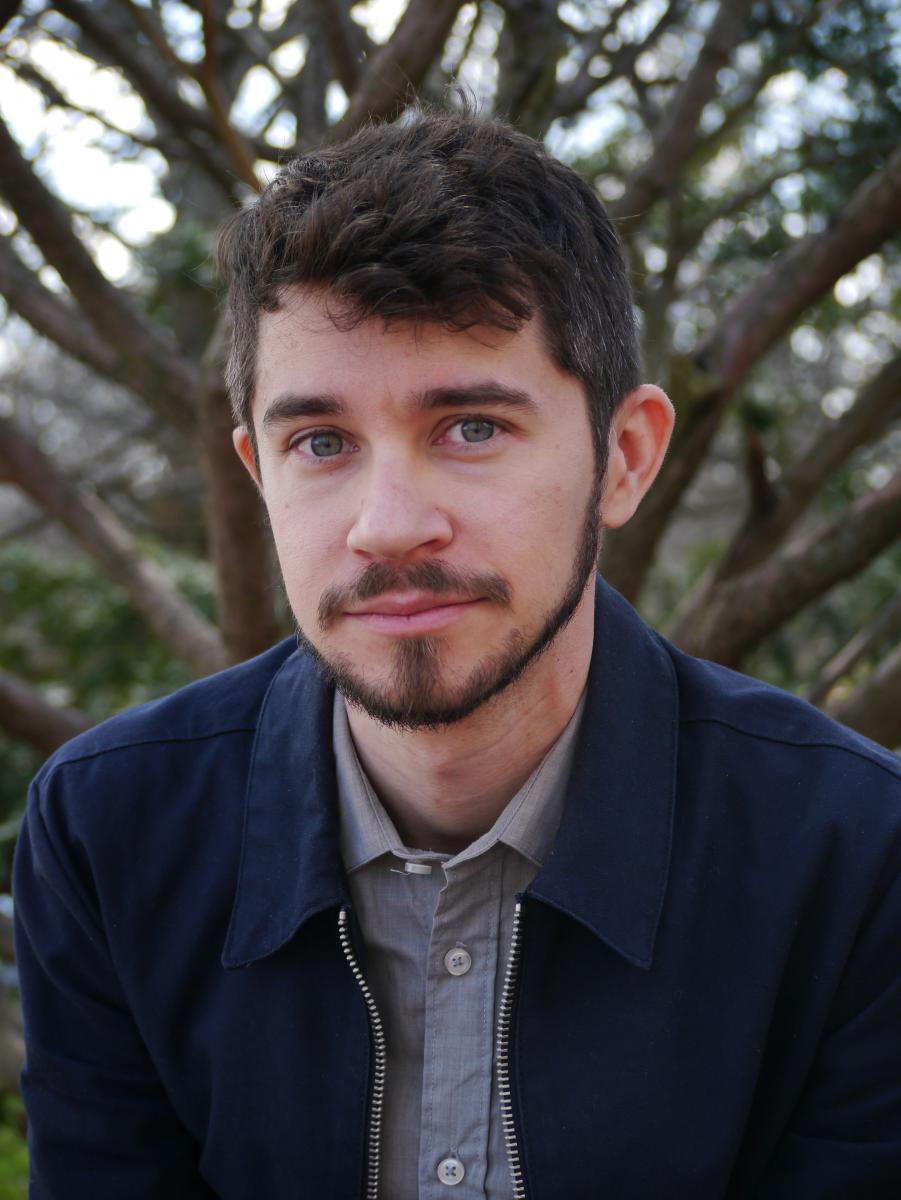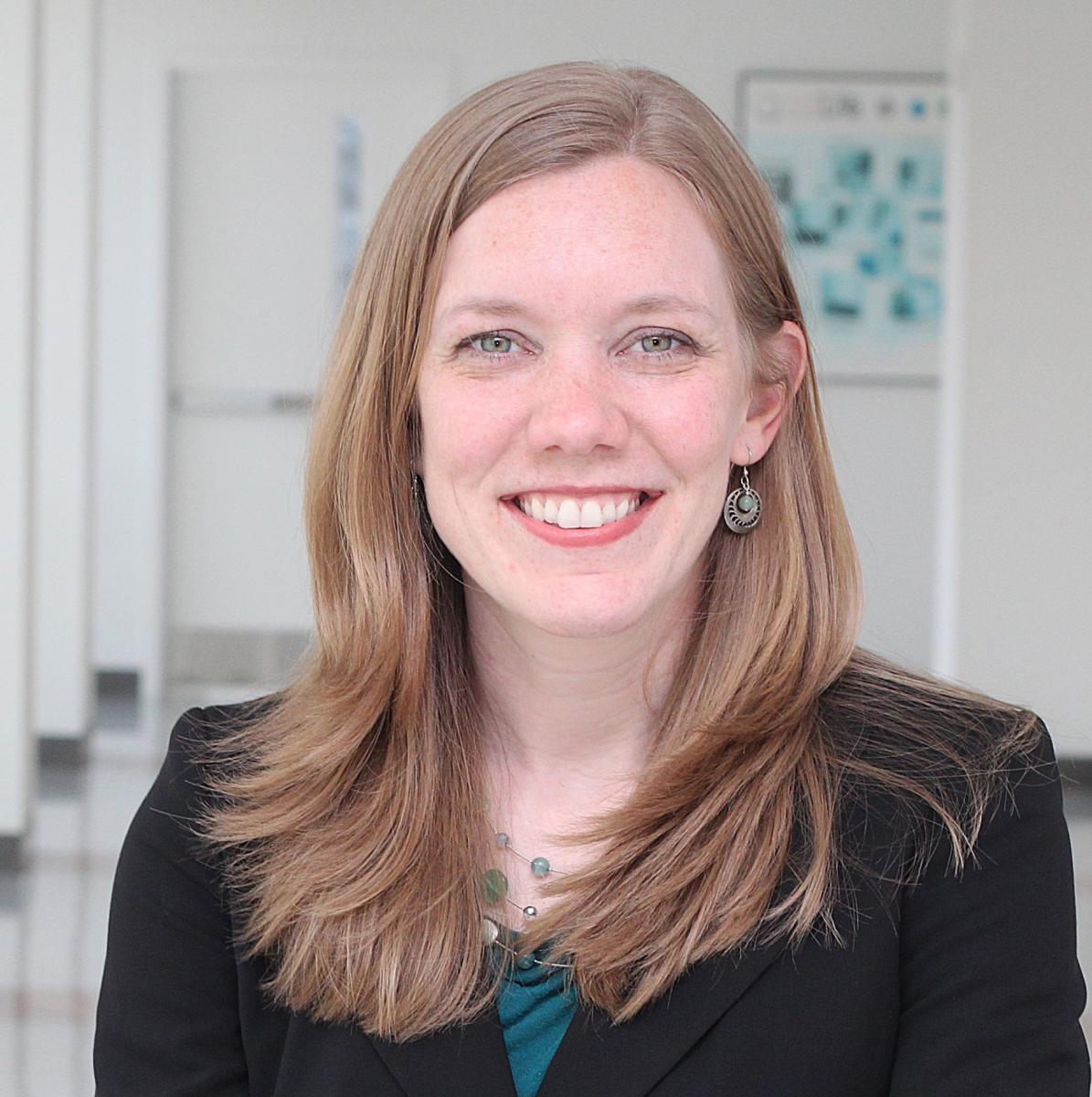
Bryant Best (’14, Sociology) works for the Innovation Lab Network at The Council of Chief State School Officers, a nonpartisan, nationwide nonprofit organization of public officials who head US departments of elementary and secondary education. At CCSSO, Bryant helps state education agency officials advance educational equity, deeper learning, and college-and-career readiness for all students. Bryant is also an active member of Alfred Street Baptist Church. More information about Bryant and his work can be found here.
 William Kenlon ('17, Music) has continued a robust schedule of performances since completing his degree earlier this year. In recent months, saxophonist Noah Bedrin performed Bright Solo in Germany, soprano Regina Stroncek performed selections from Little Dream Pieces, Vols. 1-5 in Brazil, and pianist Jennifer Hayman performed a movement of Five Number Pieces in Washington, D.C. Upcoming projects include new music commissioned by mezzo-soprano Lori Sen and pianist Sarah Barham, and recordings and performances of his dissertation work, Desire Paths: Chamber Symphony for Double Wind Quintet and Piano, in 2018. William remains active musically in the D.C. metropolitan area this season, teaching private lessons, serving as an adjunct instructor of music theory at the University of Maryland, and singing the Mozart Requiem and Händel Messiah with the Baltimore Symphony and National Symphony. More information on William's music is available at his website.
William Kenlon ('17, Music) has continued a robust schedule of performances since completing his degree earlier this year. In recent months, saxophonist Noah Bedrin performed Bright Solo in Germany, soprano Regina Stroncek performed selections from Little Dream Pieces, Vols. 1-5 in Brazil, and pianist Jennifer Hayman performed a movement of Five Number Pieces in Washington, D.C. Upcoming projects include new music commissioned by mezzo-soprano Lori Sen and pianist Sarah Barham, and recordings and performances of his dissertation work, Desire Paths: Chamber Symphony for Double Wind Quintet and Piano, in 2018. William remains active musically in the D.C. metropolitan area this season, teaching private lessons, serving as an adjunct instructor of music theory at the University of Maryland, and singing the Mozart Requiem and Händel Messiah with the Baltimore Symphony and National Symphony. More information on William's music is available at his website.
 Billie Follensbee ('00, Art History and Archaeology) is Professor of Art History and the Coordinator of the Museum Studies program at Missouri State University. Her research explores sex, gender, costume, and identity in ancient Mesoamerican and North American art, as well as examining interpretations and the proposed functions of ancient Mesoamerican and North American artifacts through archaeological replication studies. Billie has published articles in Ancient Mesoamerica and in Latin American Antiquity, the premier journals in Mesoamerican art history and archaeology, she is a reviewer for CAA. Reviews, and she is co-editor of Dressing the Part: Power, Dress, Gender, and Representation in the Precolumbian Americas (University Press of Florida, 2017). She is also the recipient of the College Excellence in Research Award, the MSU Excellence in Community Service Award, the MSU Foundation Award for Teaching, and a Dumbarton Oaks Fellowship. In 2011, she was selected as Missouri State’s candidate in the U.S. Professors of the Year competition.
Billie Follensbee ('00, Art History and Archaeology) is Professor of Art History and the Coordinator of the Museum Studies program at Missouri State University. Her research explores sex, gender, costume, and identity in ancient Mesoamerican and North American art, as well as examining interpretations and the proposed functions of ancient Mesoamerican and North American artifacts through archaeological replication studies. Billie has published articles in Ancient Mesoamerica and in Latin American Antiquity, the premier journals in Mesoamerican art history and archaeology, she is a reviewer for CAA. Reviews, and she is co-editor of Dressing the Part: Power, Dress, Gender, and Representation in the Precolumbian Americas (University Press of Florida, 2017). She is also the recipient of the College Excellence in Research Award, the MSU Excellence in Community Service Award, the MSU Foundation Award for Teaching, and a Dumbarton Oaks Fellowship. In 2011, she was selected as Missouri State’s candidate in the U.S. Professors of the Year competition.
 Yan Dong ('98, Business) is an associate professor of supply chain management at the Darla Moore School of Business, the University of South Carolina. He also taught at the Robert H. Smith School of Business, University of Maryland and the Carlson School of Management, University of Minnesota. He was a supply chain consultant for IBM Global Services. His research interests include supply chain contracts, governance, and relationships, and more recently sustainability, quality, and strategies in supply chains. His work has appeared in academic journals such as Management Science, Production and Operations Management, Journal of Operations Management, Marketing Science, and Decision Sciences. Ya's doctoral thesis entitled Just-in-time Purchasing and Supply: A supply chain analysis was recognized by ProQuest® as being among the top 25 Most-Accessed Dissertations and Theses during October 2017 of the 2 million full-text graduate works across all subject areas, and based on total PDF downloads in the ProQuest® Dissertations & Theses Global™ database.
Yan Dong ('98, Business) is an associate professor of supply chain management at the Darla Moore School of Business, the University of South Carolina. He also taught at the Robert H. Smith School of Business, University of Maryland and the Carlson School of Management, University of Minnesota. He was a supply chain consultant for IBM Global Services. His research interests include supply chain contracts, governance, and relationships, and more recently sustainability, quality, and strategies in supply chains. His work has appeared in academic journals such as Management Science, Production and Operations Management, Journal of Operations Management, Marketing Science, and Decision Sciences. Ya's doctoral thesis entitled Just-in-time Purchasing and Supply: A supply chain analysis was recognized by ProQuest® as being among the top 25 Most-Accessed Dissertations and Theses during October 2017 of the 2 million full-text graduate works across all subject areas, and based on total PDF downloads in the ProQuest® Dissertations & Theses Global™ database.
 Christopher Foster ('01, Applied Anthropology) is a management analyst and the inclusion officer for the All of Us Research Program. He focuses on data analysis, concept development, visualization, and dissemination. This includes the demographic analysis of the cohort populations and catchment areas located at the various performance and recruitment sites, including monitoring targeted and actual enrollment. Chris is responsible for visualizing cohort data through graphic information system (G.I.S.) mapping applications and the related statistical and spatial analysis. He has expertise in inclusion policy/data monitoring, and the Inclusion Management System, used for reporting sex/gender, race, and ethnicity as required by the NIH policy on the inclusion of women and minorities in clinical research. Chris is an applied biological anthropologist whose background focuses on social science, biology, and public health with a strong emphasis on health disparities, underserved populations, and minority health. He has worked for the Office of Community-Based Participatory Research and Collaboration at the National Institute on Minority Health and Health Disparities (NIMHD), the Office of Cancer Survivorship, the Behavioral Research Program at the National Cancer Institute (NCI), and the social science firm Westat. In addition, he received an NIH Office of the Director (OD) Honor Award for being part of the group that re-engineered the system that monitors the scientific oversight of women and minority inclusion.
Christopher Foster ('01, Applied Anthropology) is a management analyst and the inclusion officer for the All of Us Research Program. He focuses on data analysis, concept development, visualization, and dissemination. This includes the demographic analysis of the cohort populations and catchment areas located at the various performance and recruitment sites, including monitoring targeted and actual enrollment. Chris is responsible for visualizing cohort data through graphic information system (G.I.S.) mapping applications and the related statistical and spatial analysis. He has expertise in inclusion policy/data monitoring, and the Inclusion Management System, used for reporting sex/gender, race, and ethnicity as required by the NIH policy on the inclusion of women and minorities in clinical research. Chris is an applied biological anthropologist whose background focuses on social science, biology, and public health with a strong emphasis on health disparities, underserved populations, and minority health. He has worked for the Office of Community-Based Participatory Research and Collaboration at the National Institute on Minority Health and Health Disparities (NIMHD), the Office of Cancer Survivorship, the Behavioral Research Program at the National Cancer Institute (NCI), and the social science firm Westat. In addition, he received an NIH Office of the Director (OD) Honor Award for being part of the group that re-engineered the system that monitors the scientific oversight of women and minority inclusion.
 Kimberly Stroka ('11, Bioengineering) in an Assistant Professor at the University of Maryland's Fischell Department of Bioengineering, where she heads the Cell and Microenvironment Engineering Lab. In her doctoral work, she developed a novel hydrogel-based in vitro model in order to evaluate the effects of blood vessel stiffening on endothelial cell biomechanics, leukocyte mechanosensing, and leukocyte transmigration, during a normal immune response and in the context of cardiovascular disease. In Dr. Stroka’s postdoctoral work Johns Hopkins University, she integrated microfabrication, molecular biology, live cell imaging, and theoretical modeling in order to uncover a new mechanism by which metastatic tumor cells migrate through confined microenvironments. Kimberly's postdoctoral and predoctoral work were supported by an NIH and NSF. Kimberly was also awarded the Burroughs Wellcome Career Award at the Scientific Interface (2014-2019) for her proposal on engineering blood-brain barrier mechanobiology in the context of tumor cell metastasis. She is the recipient of 9 different awards for travel to national and international conferences (2008-2011) and is also the recipient of the 2014 Rita Schaffer Young Investigator Award from the Biomedical Engineering Society (BMES). Recently, she was was the recipient of the Research and Scholarship Award from the University of Maryland Graduate School for Summer 2017, as well as the 2017 Outstanding Young Scientist Award from the Maryland Academy of Sciences and Maryland Science Center. In addition to research, Kimberly is passionate about mentorship and outreach, both within the University and in the surrounding community. She and her group have led lab demonstrations and research and career talks for elementary school students from underrepresented minority groups, female middle and high school students, breast cancer patient advocates, students from a rural high school, and adults age 50+.
Kimberly Stroka ('11, Bioengineering) in an Assistant Professor at the University of Maryland's Fischell Department of Bioengineering, where she heads the Cell and Microenvironment Engineering Lab. In her doctoral work, she developed a novel hydrogel-based in vitro model in order to evaluate the effects of blood vessel stiffening on endothelial cell biomechanics, leukocyte mechanosensing, and leukocyte transmigration, during a normal immune response and in the context of cardiovascular disease. In Dr. Stroka’s postdoctoral work Johns Hopkins University, she integrated microfabrication, molecular biology, live cell imaging, and theoretical modeling in order to uncover a new mechanism by which metastatic tumor cells migrate through confined microenvironments. Kimberly's postdoctoral and predoctoral work were supported by an NIH and NSF. Kimberly was also awarded the Burroughs Wellcome Career Award at the Scientific Interface (2014-2019) for her proposal on engineering blood-brain barrier mechanobiology in the context of tumor cell metastasis. She is the recipient of 9 different awards for travel to national and international conferences (2008-2011) and is also the recipient of the 2014 Rita Schaffer Young Investigator Award from the Biomedical Engineering Society (BMES). Recently, she was was the recipient of the Research and Scholarship Award from the University of Maryland Graduate School for Summer 2017, as well as the 2017 Outstanding Young Scientist Award from the Maryland Academy of Sciences and Maryland Science Center. In addition to research, Kimberly is passionate about mentorship and outreach, both within the University and in the surrounding community. She and her group have led lab demonstrations and research and career talks for elementary school students from underrepresented minority groups, female middle and high school students, breast cancer patient advocates, students from a rural high school, and adults age 50+.
